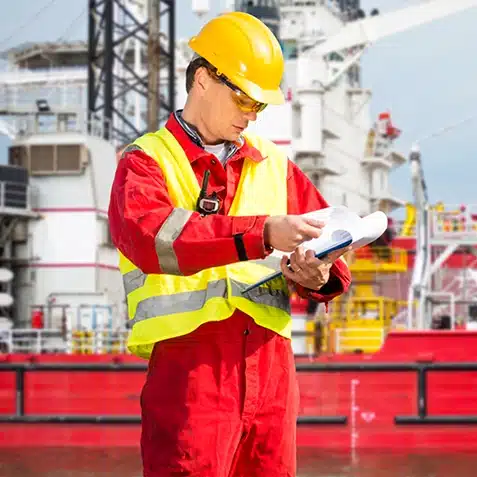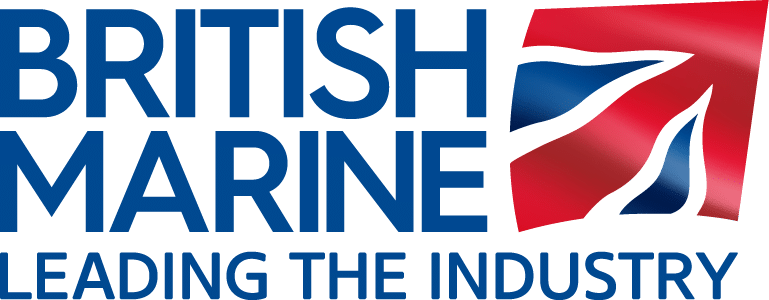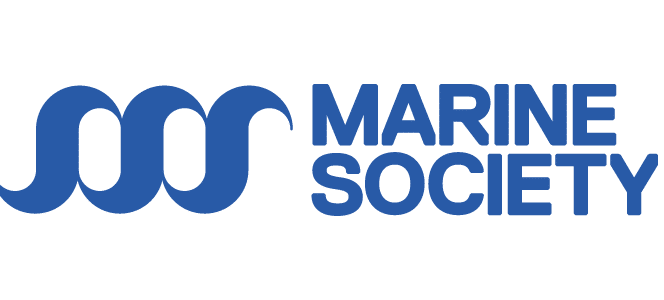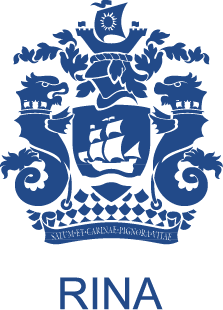Ship Surveying Course
Diploma in Ship Surveying
Ship Surveying
Maritime Training Academy’s Ship Surveying Diploma provides professional training in inspecting and reporting on the condition, structure and systems of commercial vessels.
This globally recognised qualification is ideal for marine engineers, classification staff, technical officers and aspiring marine surveyors seeking to progress into formal surveying roles.

Professional Marine Surveying Qualification
Gain the practical skills and regulatory understanding needed to carry out vessel inspections, assess ship condition and produce detailed marine survey reports.
Contact us below to enrol today, or speak with our experienced course advisors.

Duration:
12 - 18 months
Learn at your own pace
Online Course:
Study from anywhere

Cost:
Diploma: £3,195
Certificate: £2,295

Recognised by: 
Ship Surveying Diploma vs Certification
Choose the right path for your career:
Comprehensive Training: In ship inspections, condition reports, compliance checks, flag state documentation and classification society requirements.
Flexible Study Duration: 12 – 18 month depending when you enrol to the program, study online at your own pace, from anywhere in the world.
Marine Industry Career Opportunities: 100% Online, with access to our student learning portal
Long-Term Career Impact: Marine Surveyor, Ship Inspection Officer, Classification Society Assistant, Vessel Compliance Technician.
Global Recognition: Our Diplomas are recognised by the University of Portsmouth and are supported by industry associations.
Assignments: One assignment is required to be completed and submitted at the end of each module, based on that particular subject.
Certification: you will receive a PDF Digital certificate (Printed Certificate Completion Pack available).
Final Examination: There will be a final examination upon completing and submitting all student assignments (exams are sat in April or October).
Post-Nominal letters: On passing the Diploma you can also use these letters after your name: MTA Dip ShipSurv
Digital Course Badge: Upon successful completion students will receive an exclusive course badge for use on business cards, LinkedIn profiles and website(s)!
Diploma - £3,195
A globally recognised qualification for careers in ship inspection, marine surveying and vessel compliance assessment.
✔
✔
✔
✔
✔
✔
✔
✔
✔
✔
Certificate - £2,295
Specialist Ship Surveyor Training without formal assessments, for those who do not require a recognised diploma.
✔
✔
✔
✔
✔
✔
Ship Surveying Curriculum: 12 Modules
Understand how to assess the structural, mechanical and operational condition of commercial vessels. This course covers hull surveys, system checks, onboard safety inspections and reporting protocols aligned with classification society standards.
You’ll learn to conduct ship surveys professionally and accurately for use in compliance, resale, insurance or dispute resolution contexts.
Structure
Level One – Diploma or Certificate
The Ship Surveying course consists of 12 modules. All students are required to successfully complete and pass the module assignments. Diploma students will also be required to sit and pass a final examination.
Level Two – Practical – £1,000
Surveyor’s Log Book (SLB)
Level 2 consists of a Surveyor’s Log Book (SLB). Upon successful completion of the Level One Diploma, you have the option to move onto Level 2. As a surveyor under training completes each task, he/she gathers evidence to support the experience and learning gained, in a structured manner, guided by the Log Book. Once completed, the Log Book will be submitted to MTA for review.
Level Three – Peer Review – £1,000
Leading to a CoC issued by MTA.
Upon successful completion of both the Level One Diploma and Level Two, you have the option to move onto Level 3. The MTA Peer Review is a detailed oral examination lasting between two to three hours and is graded on a pass/fail basis. The three members Peer committee will ask a series of questions to test the students practical and theoretical knowledge of surveying in their chosen specialist field. Successful completion of the Peer Review is required to achieve the MTA Certificate of Competency in Ship Surveying.
1. Introduction
- An overview of the shipping industry
- Vessels
- Cargoes, passengers and other in the industry
- The regulation of the shipping industry
- Commercial law and International trade
- Marine Insurance
- Ship management
- Marine surveying
2. Essential Law
Part One – Legal Concepts
- Introduction to English Law and our Legal System
- Legal concepts
- The law of contract
- The law of tort (negligence)
- Liability in contract and tort
- Responsibilities
- The expert witness and the law of evidence
Part Two – Maritime Law
- Admiralty law and jurisdiction
- International maritime law
- Shipboard documentation
- Codes of practice for commercially operated yatchts
- The Flag State
- Collision, and salvage
- Pollution
- Marpol
- Chartering
- Pilotage
- Governmental control of shipping
- Health and safety on board ship
Part Three – Marine Insurance
- Types of insurance cover
- Claims and the surveyor
3. Report Writing for Marine Surveyors
- The basis of reports
- Preparing for the report
- Report types
- Writing the report
- Touch Typing
4. The Different Types of Survey
- Damage surveys
- Hull and machinery
- Grounding
- Surveying fire damage
- Cargo surveys
- Personal accident and injury
- Audits and compliance inspections
- International Ship and Port Facility Security (ISPS) Code
- Ship Inspection Report (SIRE) Programme
- Chemical Distribution Institute (CDI)
- Cargo pre-loading survey
- Fitness for purpose survey
- Towage
- Heavy lift
- Tie down
- Other types of survey
- Bunker surveys
5. Safety and Operational Surveys
- A definition of surveying
- Flag state safety standards
- Introduction to safety standards
- An introduction to Safety Surveys
- Life-saving appliances
- Fire protection, detection and extinction
- Navigational aids and equipment
- The role of classification societies with safety surveys
6. Incident and Accident Investigation
- The background to marine incident and accident investigation
- The human factor in incident investigations
- Initial actions in an investigation
- Managing the investigation
- Witnesses and interviews
- Collecting physical evidence
- Human factors
- Analyses, tools and techniques
- Developing conclusions and making recommendations
- Witness interviewing
- The cognitive interview
7. Surveying Engines and Ship Systems
- Diesel engines
- Ancillary systems
- Steam plant
- Power transmission
- Control systems
- Anti pollution
- Pumps
- Filters and filtration
- Emergency systems
- Refrigeration
- Electrical systems
- Deck machinery
- Hatch covers
- Units
8. ISM and ISPS
- A short history of maritime safety
- International safety management (ISM) Code
- Health and safety on board ship
- Civil and criminal liability
- The code of safe working practices regulations
9. Warranty and Insurance Surveys
- Marine insurance
- Warranty
- The different types of warranty survey
- Tugs and towing equipment
- Insurance damage survey
- Collision, speed and angle of blow
10. Cargo Surveying
- What is cargo surveying?
- Surveying tools
- Pre-survey requirements
- Duties of a cargo surveyor
- Documents required
- What a surveyor is expected to do on survey
- Terms of sale of goods and their transport insurance
- Mode of transportation
- Forms of conveyance of goods
- Types of packaging
- Types of cargo and possible forms of damage
- Resolution of claims
- Determination as to how / where loss occurred
- Surveyor Acting for Carrier’s Liability / P&I Insurers
- Brief Summary of an Example Survey
- Report writing
- Hague-visby rules
- Role of a claims / loss adjuster
- Health and safety issues
11. Flag and Port State Control Inspections
- Port state control
- Regions and cooperation between port states
- PSC inspections
- Deficiencies and detentions
- Commercial implications of port state detentions
- Maritime labour convention
12. Surveying the Hull Structure
- Ships’ structure
- Structural strength
- Main structural components
- Use of ships’ plans
- Determination of condition or extent of damage
- Calculation of steel weight and repair cost
- Presentation of information
Hear from our Students
Meet the Course Director
Ian Biles
Managing Director at Maritime Services International
Ian has led MSI to become one of the world’s leading surveying companies. Ian’s qualifications include: Master Mariner, RYA Yachtmaster Ocean, Naval Architect (BEng Ship Science) and Business Management (MA Business Management).
As well as his wealth of knowledge, practically Ian has undertaken survey assignments in over 70 countries worldwide.

Ship Surveying Course FAQs
Find out more about the course with our FAQs below.
How do I become a certified ship surveyor?
Start by completing a recognised diploma in marine or ship surveying. This course gives you the knowledge and practical framework to inspect vessels, document findings and work professionally within the maritime surveying industry.
What qualification will I receive from this course?
You’ll earn a Diploma in Ship Surveying from the Maritime Training Academy recognised globally by marine employers and surveyor registration bodies.
Is this course suitable for marine engineers and officers?
Absolutely. It’s designed for professionals from technical, engineering or operational marine backgrounds looking to move into vessel inspection roles.
How much does a ship surveyor earn?
Salaries typically range from £40,000 to £75,000 depending on role, experience and employment type (independent vs classification society). International and offshore work often pays higher.
Does this course cover flag and class inspection procedures?
Absolutely. It includes ship condition checks, class documentation, flag requirements and inspection reporting practices aligned with IMO and classification standards.
Can I take this course without prior surveyor experience?
Yes. While marine background helps, the course supports transitions from other shipboard or compliance roles into surveying.
See our FAQ page for more questions answered about MTA courses.
Supported by:



Why Choose The Maritime Training Academy?

Flexible
Online learning allows you to study in your own time, at your own pace from anywhere in the world. This saves on travel and classroom costs and allows you to fit your studies around your job and progress your career.

Supportive
While the nature of distance learning is independent study, we recognise the importance of support. Students can contact us at any time during their course for assistance and our team of industry experts are always on hand for advice.

Expertise
We have over 50 industry experts writing, developing and advising on our course material. We truly believe that allowing students to tap into their expertise and knowledge is of the utmost importance to fulfil your dream career.
If you would prefer to complete this as a classroom-based course, please contact us.
